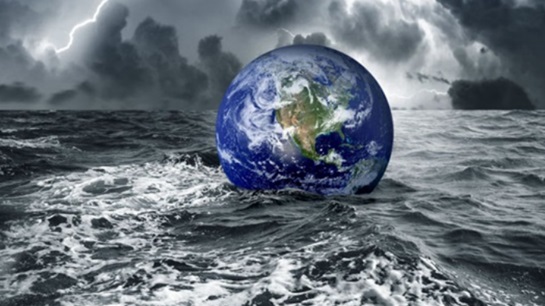 10-04-2020
10-04-2020
Weather risks are insurable-Swiss Re

 Insurance Alertss
Insurance AlertssWeather risks are insurable-Swiss Re
Weather risks, with adaptation actions, remain insurable, according to Swiss Re Institute (SRI). Insurers though need to adapt to a dynamic risk landscape by closely monitoring and incorporating socio-economic developments, the latest scientific research on climate change effects, and the status of local risk mitigation measures in their modelling.
In a new sigma report titled "Natural catastrophes in times of economic accumulation and climate change", SRI says that insurers have to be wary of historical loss records while building risk models to account for socio-economic and climate trends. Many of today's catastrophe models are benchmarked against historical loss data, which does not reflect the current level of urbanisation, and hence do not fully account for today's quickly rising exposures, changing socio-economic environment and climate.
Mr Martin Bertogg, head of catastrophe perils at Swiss Re, said, "Averaging out over a past spanning multiple decades can lead to distorted risk assessment."
Typhoon Hagibis is a case in point. Japan has always had high exposure to typhoon risk, and with huge investment in coastal and inland flood defence following the devastating typhoon events in the 1950s and 1960s, the re/insurance industry had considered flood risk in Japan to be largely mitigated. However, most of the $8bn in insured losses from Typhoon Hagibis came from floods, and due to urban development since the mid-20th century, Tokyo was unprepared for the degree of physical damage it suffered. "While flood defences prevented major havoc in parts of Greater Tokyo, at least 55 levee breaches and overflowing rivers illustrated that water inundation risk is only partially mitigated," Nr Bertogg said.
Severe weather losses
SRI expects that global warming will lead to growing intensity and frequency of severe weather events, but also to more uncertainty in their assessment.
Economic and insured losses resulting from such events will rise in the coming decades. Worldwide, economic losses from natural and man-made disasters in 2019 were $146bn, lower than $176bn in 2018 and the previous 10-year annual average of $212bn. The global insurance industry covered $60bn of the losses, compared with $93bn in 2018 and $75bn on average in the previous 10 years. The decrease in losses primarily stem from the absence of large and costly hurricanes in the US.
"Economic development and ever-increasing population concentration in urban centres, alongside changes in climate, will continue to increase losses due to weather events in the future," said Edouard Schmid, SRI chairman Swiss Re group chief underwriting officer.
Source: Asia Insurance Review
